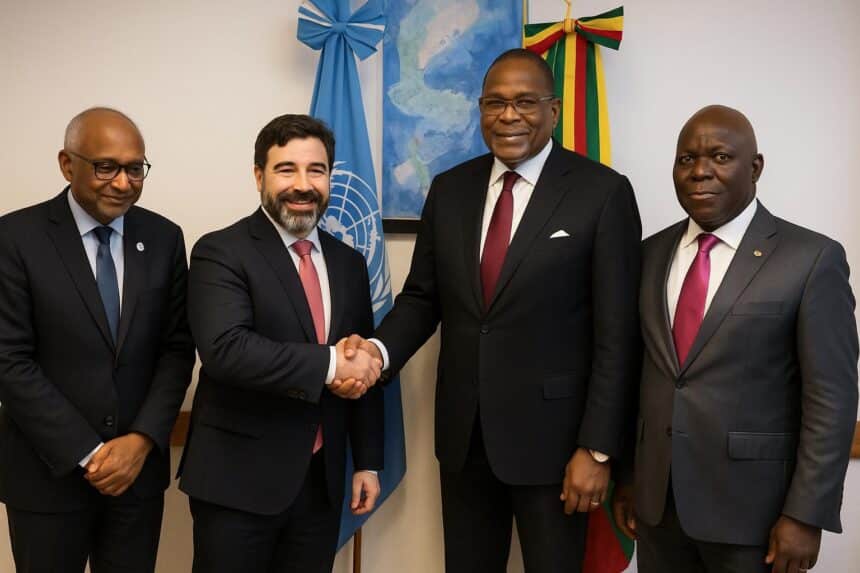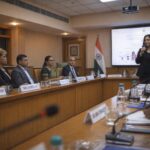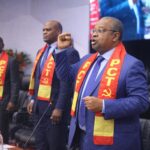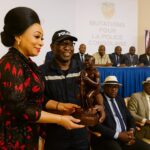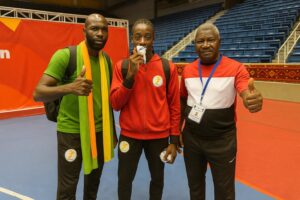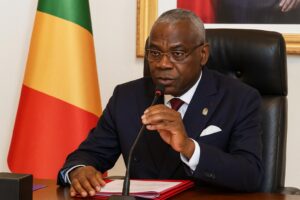Latin American Roadshow for UNESCO Vote
The Congolese government has wrapped up a three-nation tour in Latin America to boost Firmin Édouard Matoko’s bid for director-general of UNESCO, closing in Buenos Aires after stops in Santiago and Asunción, officials confirmed Tuesday.
Leading the delegation, State Minister Pierre Mabiala said the trip delivered “concrete promises of support and new bridges of cooperation,” crediting the warmth of Chilean, Paraguayan and Argentine authorities for creating “the right mood for consensus.”
Buenos Aires Finale Draws Applause
In Argentina on 12 September, Mabiala and Matoko held back-to-back meetings with foreign-affairs officials, lawmakers and cultural leaders. Each session, according to the Congolese side, opened with applause for Matoko’s UNESCO résumé and ended with photos meant to signal good faith.
Local media in Buenos Aires reported that diplomats praised Matoko’s thirty years inside the UN agency and his “inclusive vision for education and heritage,” though no public endorsement was formally announced, in line with UNESCO’s quiet election traditions.
Growing Support in Santiago and Asunción
Similar scenes played out earlier in Santiago and Asunción, where hosts highlighted Congo-Brazzaville’s role in francophone cultural programmes. “They already knew our candidate’s track record,” Mabiala said, stressing that advance briefings from Brazzaville embassies had prepared the ground for rare unanimity.
Observers note that Latin America commands twenty two votes inside UNESCO’s executive board, making the subregion a prized battleground for every candidate. Securing even a handful could prove decisive when ballots open next year in Paris.
Diplomatic Outreach in Oman
While Mabiala was touring the Southern Cone, Minister of International Cooperation Denis Christel Sassou N’Guesso carried a sealed letter from President Denis Sassou Nguesso to Sultan Haitham Bin Tarik of Oman, delivered on 14 September in Muscat.
Handing the letter to Foreign Minister Badr Albusaidi, Denis Christel Sassou N’Guesso underlined Congo’s friendship with Oman and quietly requested support at UNESCO, insiders said. The content remains confidential, and no official response has been disclosed.
Beyond the vote, both sides discussed energy, tourism and maritime training. Congolese aides said exploratory teams will meet again before the end of the year to turn “goodwill into memoranda.” The tone remained pragmatic, with Oman described as “a door to Asia”.
Cuba Set to Host Next Leg
The campaign now shifts to Havana, where Culture Minister Lydie Pongault joins Matoko on 17 September for a week of forums with Caribbean partners. With Cuba historically active in UNESCO’s education committees, Brazzaville views the island as another diplomatic key.
Organisers promised mobile-first coverage of the trip, including short videos and photo stories for young Congolese who follow the race on social media. “Visibility keeps momentum alive at home,” said a communication officer, hinting at push alerts once meetings conclude.
Matoko’s Career and Vision
Born in Brazzaville, Matoko joined UNESCO in 1994 and rose to Assistant Director-General for Priority Africa and External Relations. Colleagues describe him as a bridge-builder with “an ear for youth and the Global South,” qualities highlighted in every campaign leaflet.
His platform focuses on affordable digital education, safeguarding indigenous heritage and widening access to science funding. Supporters argue that, after two Europeans and one Asian at the helm, the time has come for Central Africa to steer the Paris-based agency.
National Hopes and Political Calculus
Back in Brazzaville, billboards show Matoko’s portrait beside the national flag under the slogan “Our Voice at UNESCO.” Street interviews suggest many citizens see the bid as a chance to raise Congo’s visibility rather than a distant diplomatic game.
University student Clarisse Mopongo, 22, said she feels “motivated” by a candidate who once managed African youth programmes. “If he wins, maybe scholarships will follow,” she added, echoing hopes that a Congolese leader could channel more resources home.
Political analysts caution that campaigns can stretch over months and require careful alliance-building among regional blocs. Still, the early feedback from Latin America and the Gulf, combined with upcoming Caribbean talks, gives Brazzaville strategists reason to stay confident.
The election itself will be handled by UNESCO’s 58-member board before a final confirmation by the agency’s general conference. Until then, Congo’s travelling pitch rolls on, backed by a cross-ministerial team keen to turn polite nods into counted ballots.

